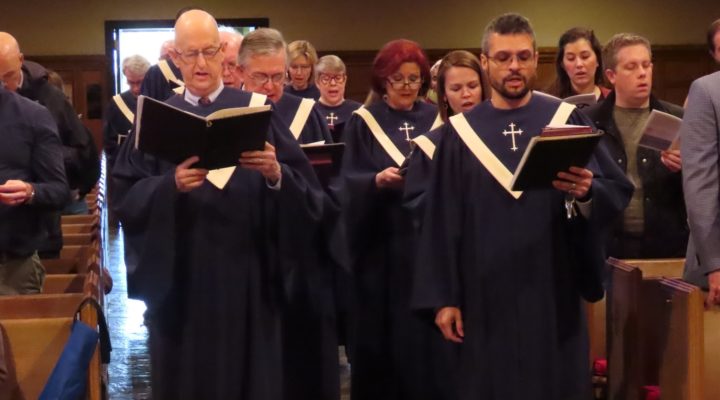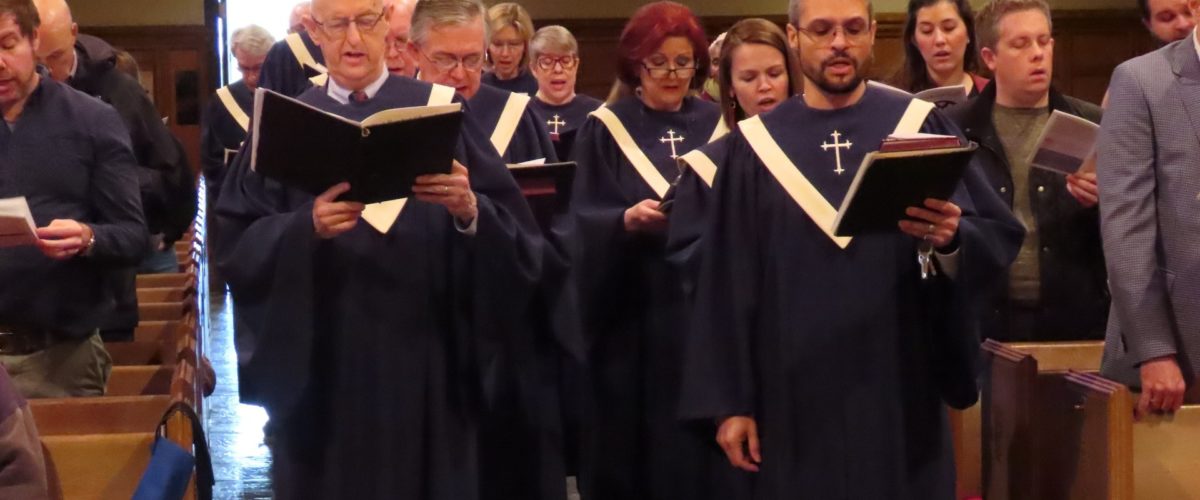The idea that Millennials are attracted mostly to contemporary worship services is largely an outdated stereotype — at least in moderate and progressive Baptist settings, say ministers who serve young adults and youth.
Instead, young adults are hungry for churches that are confident in identity, committed to service and genuine in fellowship, said Alyssa Aldape, associate pastor for young adults and youth ministry at The First Baptist Church of the City of Washington, D.C.

Alyssa Aldape leading in online worship.
“They aren’t just looking at worship style,” said Aldape, herself a Millennial at 32. “They are looking for authentic communities that are unapologetically themselves. That is where they will land.”
For some, that will mean traditional worship. For others, contemporary or even charismatic, she added.
Yet much of the church world remains enthralled with the worship preferences of Millennials, those born between the early 1980s and the mid-1990s, and more recently that of Generation Z, who were born about 1995 to 2015. For years, these young adults have been viewed as the golden ticket to congregational longevity.
A recent Barna survey reported that Millennials are the Christians most likely to embrace charismatic and “lively” worship, at 48% combined. Barna also said members of the Elders and Boomer generations leaned much more heavily to traditional worship styles and hymns. And that more than a third of Millennials (36%) believe speaking in tongues should be a weekly part of their worship experience.
Then came coronavirus
But those statistics are pre-pandemic, and if COVID-19 has revealed anything about church attendance, it’s that loyalty is up for grabs in the virtual setting, said Matt Cook, assistant director of the Center for Healthy Churches and interim pastor at Hendricks Avenue Baptist Church in Jacksonville, Fla.

Matt Cook
After months spent surfing the online services of congregations other than their own, many Americans are showing signs they will go — and stay — wherever they like, he said. “If everyone is at home on Sunday morning, then everybody has a choice of how they worship.”
So, it’s not just Millennials but anyone on the rolls that churches must seek to attract, because traditional ways of measuring loyalty have been invalidated by the coronavirus outbreak, Cook explained.
“The genie is not going back in the bottle. When the pandemic is over, people are still going to expect worship to be virtual.”
Seeking relationship
Online or in-person, worship issues aren’t the central concern of Millennials at First Baptist Church in Abilene, Texas, said Matthew Broyles, its pastor for college and young adults.
“I’m not sure how much worship style matters at all, at least to some of my folks,” he said.
What does matter is having an impact on the world, he explained. “There is a deeper longing among young adults for the church to have something to say about social issues. They’ll say, ‘If I am going to take time to come to church, I want to know I am serving the community and making a difference.’”

Matthew Broyles, top row second from the left, leads a young adult study at First Baptist Church of Abilene, Texas.
Broyles described worship at First Baptist as a blend of traditional and contemporary that includes a full orchestra and the singing of hymns and contemporary songs.
But those he ministers to seem to be focused more on the quality of fellowship. “The way another minister put it was that people at First Baptist come here because it feels like home. That fits my people, too.”
In Washington, D.C., many young adults have gravitated to the traditional worship offered at First Baptist, Aldape said. For some this is their first church experience, while for others it a refreshing alternative to the modern styles they grew up with. “They found the beauty in the liturgy and the hymns and in the contemplative practices,” she explained.
But that’s not all they are after. Even in the pandemic, they seek ways to be of service, a value that helped the church raise $25,000 recently to support local nonprofits. “They are chomping at the bit do so something,” she said.
Patience with virtual church
Like other members of the church, young adults have been patient with each other and clergy during the inevitable glitches that come with worship on Zoom. They are understanding when Wi-Fi connections freeze during a sermon, and they have been accepting of the elimination of some elements of the service, including the procession.
“There has been a whole lot more grace in Zoom church,” Aldape said. “It has shown us there are things we can give ourselves permission not to do anymore, and it teaches us if we have someone’s attention, we must use the time well.”
“Attendance” for First Baptist’s virtual services has remained steady, and that goes for young adults who seek substance over style, she said. “What Millennials are looking for is authenticity. Nobody wants to feel lured in because the church needs someone to run the website.”


